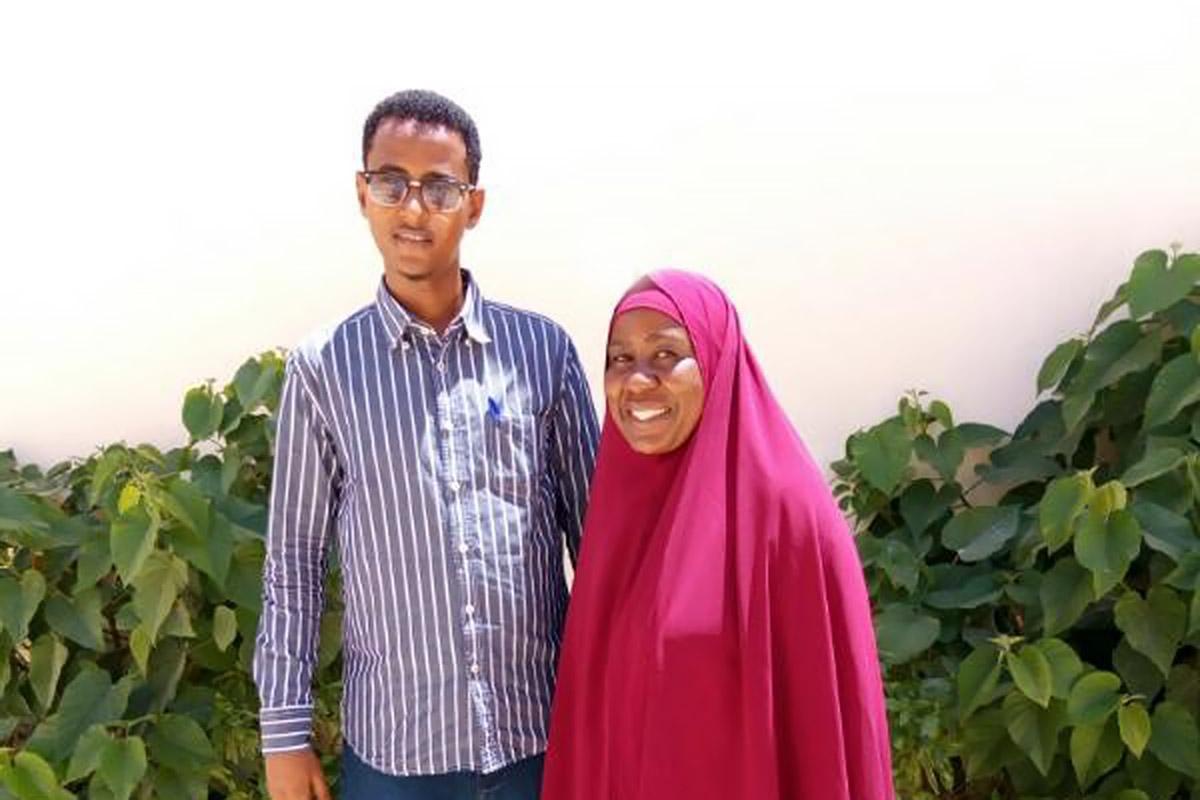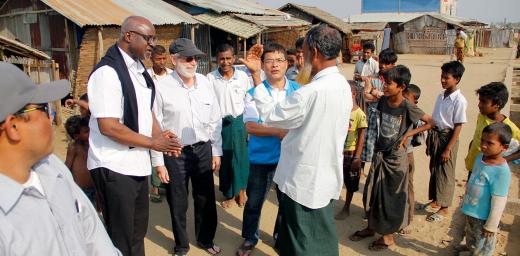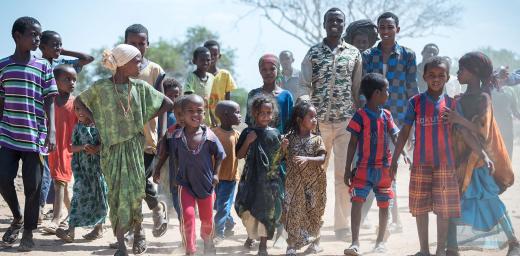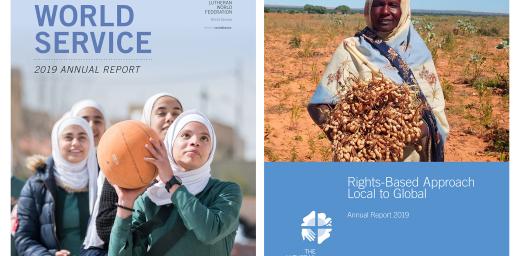LWF assists refugees returning to Somalia

Abdi Abdullahi has come home. He is grateful to LWF for helping him gain the life experience that has enabled him to return to Somalia and serve his community. Photo: LWF/ Anne Wangari
Skills enable young refugees to start a new life in back home
(LWI) - A protracted refugee situation in Dadaab, Kenya, means, that many young people are born in the camp or grow up there. As adults, they are encouraged to return to a country they have little or no memory of. One of them tells his story, and how The Lutheran World Federation (LWF) has supported his return.
Abdi Abdullahi has come home. He is grateful to LWF for helping him gain the life experience that has enabled him to return to Somalia with his young family - after years as a refugee in Kenya - to serve his community.
“I am who I am today because of what I learned from LWF,” he said. “Thank you for making me strong and valuable to my community. I hope we can work together again here in Somalia.”
Growing up in Dadaab refugee camp
When he was four-years-old Abdullahi’s family was forced to flee Somalia because of the civil war raging there, crossing the border into Kenya and settling at the Dadaab refugee camp.
Set up in 1991 to house the stream of refugees from Somalia, Dadaab, which is named after the nearby town, houses half a million in the eastern Kenyan desert. Abdullahi grew up in the Dagahaley settlement of Dadaab.
One of 11 children, Abdullahi, was able to attend school, in addition to the religious instruction given at the madrasa (learning institute). He worked with his uncle in Nairobi for a year, before returning to Dadaab in 2009 when he was invited for a resettlement interview, which would have given him the chance to begin a new life abroad in a country other than Kenya or Somalia.
I am who I am today because of what I learned from LWF,” he said recently. “Thank you for making me strong and valuable to my community. I hope we can work together again here in Somalia.
When his application for resettlement was rejected, he started working for a humanitarian organization, later attaining his teacher’s certificate. In 2013 Abdullahi started working with the LWF as a social services supervisor. It changed his life.
“The pay was better, and the workload was manageable. I also saw a chance to get a different work experience,” Abdullahi explained. Thanks to LWF, he learned how to handle complaints from the community, and provide psychosocial support and first aid.
LWF has been working in Dadaab since 2008, providing primary education, vocational training, early childhood development, and support to people with disabilities and the elderly.
Return to Somalia
In 2009 Abdullahi was married in Dadaab. He and his wife would go on to have three children.
In 2015 Abdullahi went to Somalia to see if it was safe for him to return with his young family. The family later joined him in Kismayu, a port city in south Somalia. But when his wife became pregnant, he sent them back to Dadaab because he felt the medical facilities in Kismayu were not safe for the birth.
Back in the camp, his wife delivered a healthy baby girl before the family returned to Somalia for a second time in 2016. Abdullahi hopes to stay and to make a new life with his family. The situation is far from ideal.
“When I first returned to Kismayu, there were many security checkpoints and security personnel everywhere. It frightened me,” Abdullahi recalled. “But I was able to get a job with the Somali Peace Institute, a local non-governmental organization (NGO), as a project officer.”
“The salary was good and I was able to comfortably support my family,” he said.
In 2016 he left the NGO and joined the civil service as a translation officer. Today, Abdullahi is working to support the youth in Kismayu.
Sustainable return
He would like to work with LWF in Somalia, where LWF supports 7,000 people through teacher training and student programs, school meals and sanitation services in Kismayu, located in the Jubaland state in the southern part of the country.
A sustainable return to Somalia is difficult because of ongoing security concerns in Somalia, he added, and because there are large numbers of internally displaced competing for the same jobs
For Abdullahi, being supported by LWF has put him in good stead to reintegrate into his homeland. “Working with LWF when I was in Dagahaley opened up my world,” he commented.
“We were well supported and had the freedom to interact and learn. This was very exciting. The camp manager had faith in us. He trusted us and allowed us to make decisions about the work we were doing for the community.”





